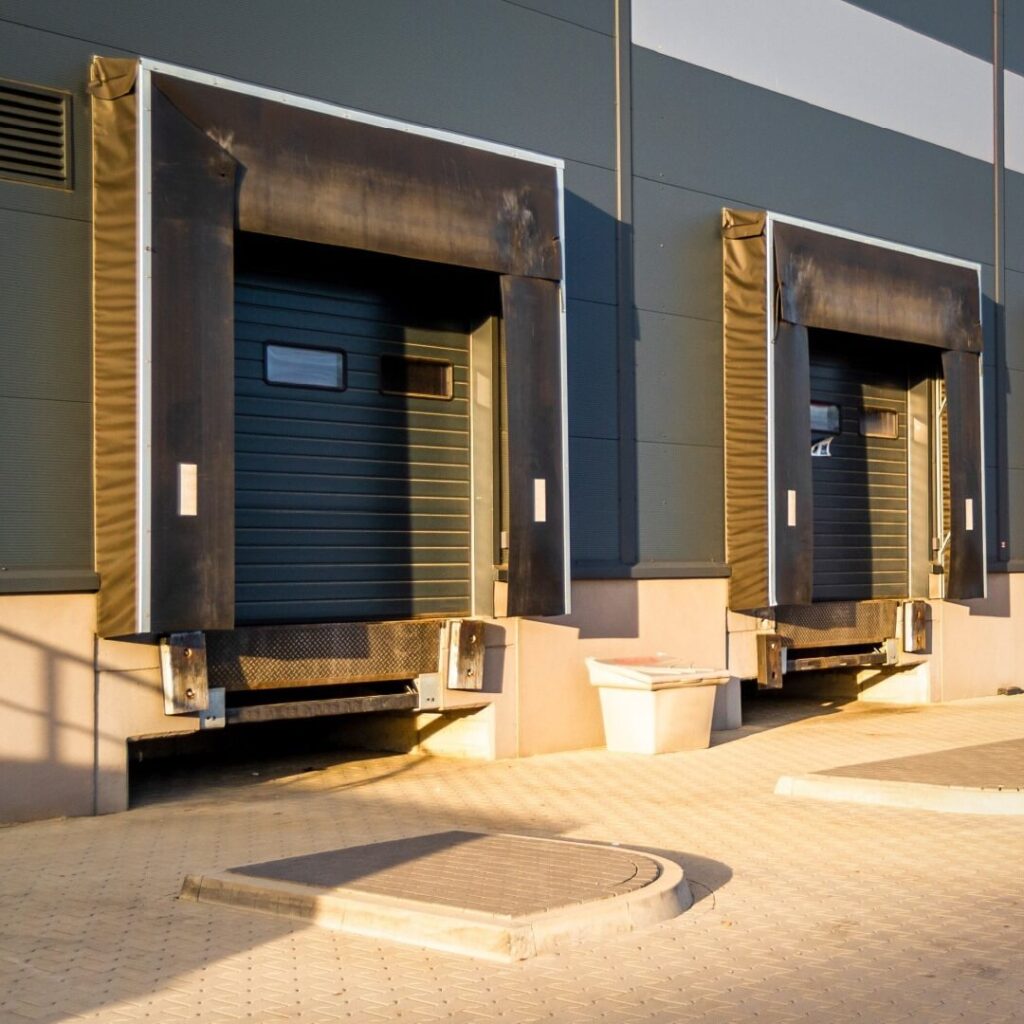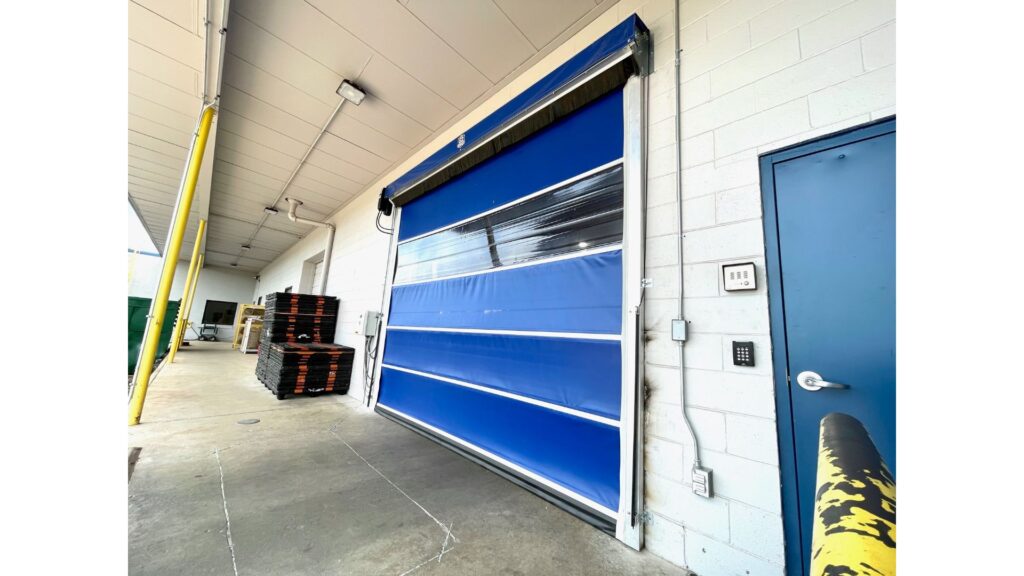Changing temperatures and unpredictable weather conditions can affect your commercial overhead doors. Between scorching summers, frigid winters, and severe weather events in between, preparing your doors for the seasons is an essential step in taking care of your investment.
In this post, we’ll walk you through the essential seasonal preparations for your commercial overhead doors in summer and winter and give you a few techniques to help improve your doors’ insulation. We’ll also clue you in on a few signs that your overhead doors may need some additional TLC from a professional commercial door company. Keep reading to learn more!
How to Prepare Your Commercial Overhead Doors for Summer
In summer, keeping hot air out and preventing issues from pests is essential. Here’s how you can prep your doors for the hot summer months.
1. Perform a Routine Inspection
You don’t need to get fancy with it, but you should perform a basic inspection on your doors to ensure everything is working properly. Look for any signs of abnormal wear and tear, broken components, cracks or warping in the panels, or irregular operation. If you notice anything that can’t be easily fixed or adjusted, call a professional for a more thorough inspection and repairs.
2. Lubricate Moving Parts
Heat can cause metal parts to expand, which can lead to more friction between moving pieces and jamming. To prevent this, be sure to lubricate any moving parts of your door like springs rollers, and hinges. Be careful not to apply too much lubricant! Over-lubricating can attract dust and gunk up your lubricated areas.
3. Check on Your Weatherstripping
Weatherstripping wears down over time, and it can be easy to miss during an inspection. Take a look at any weatherstripping you have and look for cracks or fraying. If your weatherstripping looks worn out or isn’t touching the surfaces it’s supposed to, you may need to replace it.
How to Prepare Your Commercial Overhead Doors for Winter
Just like in the summer, the winter brings on more extreme temperatures and weather conditions that can affect your doors. Some of the steps for winter prep are similar, but there are a couple of other things to consider when it comes to the cold!
1. Perform an Inspection For Gaps and Leaks
You should conduct a basic inspection and keep an eye out for indicators that your door is leaking air or letting rain or snow in. Look for gaps in your panels or along the sides, top, and bottom of your door. If you see any significant gaps, call your commercial door company for assistance. This can help manage heating costs when it gets cold!
2. Lubricate Again
Hot weather causes metal to expand, while cold weather causes metal to become stiff and more rigid. This can make the moving parts of your door more difficult to operate if not lubricated well enough. Again, don’t use too much lubricant. By doing this, you can prevent stiffness from causing anything to break on your door while it’s cold.
3. Consider Better Insulation
You should check your weatherstripping just like you did in the summer, but you may consider improving the insulation you already have. Better weatherstripping is an example of this. If you notice that cold air is still seeping in from your door, you may consider getting a better system installed.
Please note: getting a more advanced installation system installed will change the weight of your door and therefore require rebalancing. This should be done by a professional door technician as this requires many dynamics to get the job done safely and obtain the correct balance for the new setup. This will help to prevent your door from wearing down or breaking over time with use. Nearly every component of overhead doors need to be recalibrated and adjusted to accommodate the new weight of the added insulation, so leave this to the pros!
How to Improve the Insulation of Your Commercial Overhead Doors
Aside from the steps above, there are other ways you can better insulate your doors for hot and cold weather.
Use an Insulation Kit
Insulation kits are available for basic overhead doors and are relatively easy to install. They consist of foam panels that are cut to size and fitted into your door to help keep the outside temperature from seeping in. Insulation kits also help with managing both colder and warmer outside temperatures.
Regularly Check Up On Your Seals and Panels
Everyone so often, especially when the seasons change, check up on the spaces between your door panels and all the points where your door meets the walls and floor. If you notice anything that doesn’t line up right or is letting outside air through, call your commercial door company. This may require balancing your door or installing better insulation methods.
Upgrade to an Insulated Door
If the tips above just aren’t cutting it, you may benefit from an overhead door specifically designed for top-tier insulation. These doors come with better insulating materials like polyurethane inside the panels and are the best option for managing temperature concerns. They can help reduce heating and cooling costs as well.
Signs Your Commercial Overhead Door Needs Season-Specific Attention
Materials can expand, contract, and even warp due to certain weather conditions. This means that the weather can directly cause issues with your doors in some instances. Here are a few signs your door needs seasonal attention or weather-related repairs.
- Difficulty opening and closing: If your rolling door isn’t operating properly or is difficult to use, you may have some weather-related damage that has caused parts of your door to become misshapen or broken.
- Visible gaps or cracks in materials: Warping or the door itself, your building, and even movement in the foundation of your building from settling can cause your doors to become misaligned. You may need new weatherstripping or alignment for your door.
- Increased energy bills: as the seasons change, changes in your energy bills can happen. But, if you notice a sharp increase in your bills, your overhead doors may be the culprit.
- Rust or corrosion: many metals used to construct doors can experience wear and tear over time, This includes rust and corrosion, which can be caused by different weather conditions. These can hurt the longevity of your door and lead to more issues over time.
- Noisy operation: Squeaking, creaking, scraping, and more can all be signs that something isn’t right with your commercial overhead door. Sometimes, these issues are caused by changes in the weather and require attention.
Seasonal Prep for Commercial Overhead Doors: Conclusion
Properly preparing your overhead doors for seasonal changes not only ensures their longevity but also preserves the energy efficiency of your building. Regular maintenance check-ups and seasonal preparations can help prevent your overhead doors from wearing out and allow you to spot potential issues before they become major problems.
If you need seasonal maintenance, an inspection, or some new commercial overhead doors, give us a call at Commercial Door. We service commercial doors in Norman, Oklahoma City, Tulsa, and surrounding areas. See our services to learn more about what we’re capable of, and take a look at our blog to learn more about keeping with your commercial doors.





